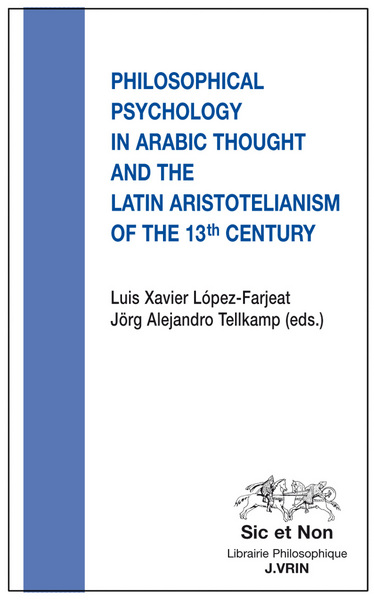- EAN13
- 9782711624614
- Éditeur
- Vrin
- Date de publication
- 9 avril 2013
- Collection
- Sic et Non
- Nombre de pages
- 304
- Dimensions
- 21,5 x 13,5 x 1,8 cm
- Poids
- 390 g
- Langue
- fre
Philosophical Psychology In Arabic Thought And The Latin Aristotelianism Of The 13 Th Century
Luis Xavier López Farjeat, Jörg Alejandro Tellkamp
Vrin
Prix public : 32,00 €
In the 13<sup> th</sup> century many of the Latin doctrines of the soul, intellect and perception were heavily influenced by Arabic sources, being Avicenna and Averroes the most significant ones. Their reading of Aristotle’s De anima stresses either a more or less Neoplatonic conceptual framework or a return to the purported Peripatetic roots. This volume deals with the generation and transmission of the Aristotelian science of the soul from Arabic into Latin and, incidentally, into Hebrew. It becomes clear that Latin discussions, such as in Albert the Great, Thomas Aquinas or Roger Bacon and John Duns Scotus, should be thought of as the result of the either affirmative incorporation and transformation of the Arabic-Aristotelian tradition or its rejection.
The articles gathered in this volume showcase various facets of the Arabic and Latin philosophical psychology ranging from the Avicennian theories of vision, cogitation and musical awareness to Averroes’s relevance for a proper understanding of Aquinas’s early theory of the intellect as well as the structure of animal knowledge according to Albert the Great and Roger Bacon. Even though rooted in different theological and philosophical traditions, it is clear that the Arabic and Latin theories of the soul use a common Aristotelian language.


















